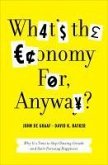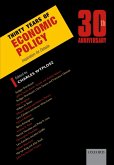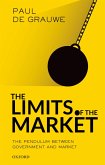The Community of Advantage asks how economists should do normative analysis. Normative analysis in economics has usually aimed at satisfying individuals' preferences. Its conclusions have supported a long- standing liberal tradition of economics that values economic freedom and views markets favourably. However, behavioural research shows that individuals' preferences, as revealed in choices, are often unstable, and vary according to contextual factors that seem irrelevant for welfare. Robert Sugden proposes a reformulation of normative economics that is compatible with what is now known about the psychology of choice. The growing consensus in favour of paternalism and 'nudging' is based on a very different way of reconciling normative economics with behavioural findings. This is to assume that people have well-defined 'latent' preferences which, because of psychologically-induced errors, are not always revealed in actual choices. The economist's job is then to reconstruct latent preferences and to design policies to satisfy them. Challenging this consensus, The Community of Advantage argues that latent preference and error are psychologically ungrounded concepts, and that economics needs to be more radical in giving up rationality assumptions. Sugden advocates a kind of normative economics that does not use the concept of preference. Its recommendations are addressed, not to an imagined 'social planner', but to citizens, viewed as potential parties to mutually beneficial agreements. Its normative criterion is the provision of opportunities for individuals to participate in voluntary transactions. Using this approach, Sugden reconstructs many of the normative conclusions of the liberal tradition. He argues that a well-functioning market economy is an institution that individuals have reason to value, whether or not their preferences satisfy conventional axioms of rationality, and that individuals' motivations in such an economy can be cooperative rather than self-interested.
Dieser Download kann aus rechtlichen Gründen nur mit Rechnungsadresse in A, B, BG, CY, CZ, D, DK, EW, E, FIN, F, GR, HR, H, IRL, I, LT, L, LR, M, NL, PL, P, R, S, SLO, SK ausgeliefert werden.









